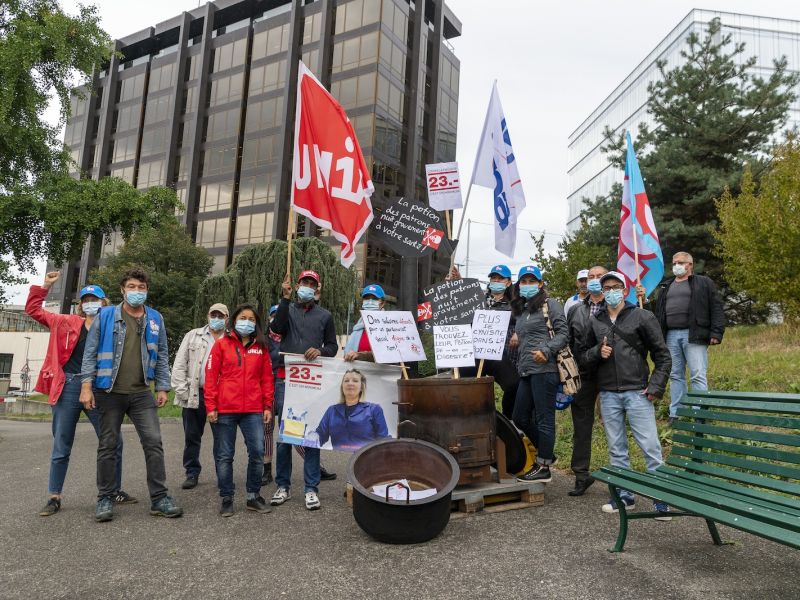1 October, 2020Protect wages, not borders: unions hit a double target and win in Geneva and Switzerland this weekend. A union campaign encouraged the 500,000 population of the Geneva area to vote against growing poverty in one of the world’s most expensive cities by introducing a minimum living wage of CHF 23 (US $25) per hour.
At national level, Swiss unions and their political allies convinced voters to resist right wing attempts to divide workers over borders.
In a vote on 27 September, over 58 per cent of Geneva voters said ‘YES’ to the initiative "23 frs, c'est un minimum" (23 francs is a minimum). At the same time, 69 percent at national level said ‘NO’ to the right-wing initiative to limit the entry of workers from European Union member states, an attempt to blame foreign workforce for worsening conditions.
Through the system of direct democracy, the Swiss population can call for a referendum to change or introduce a law. Swiss unions and left-wing parties used this mechanism to launch an initiative on the minimum living wage in the canton of Geneva.
The association of Geneva unions, Communauté genevoise d’action syndicale, which includes IndustriALL affiliates UNIA and SYNA, says in their statement that with their vote “Geneva has just given a very clear signal to employers and to all those who try to pit workers against each other: against precarity and abuse by employers, it is wages that must be protected and not borders.”
According to Travailler en Suisse, which provides statistics on working conditions in Switzerland, the Swiss monthly gross salary across all sectors in 2016 was on average CHF 6,502 (US $7,083). In the most qualified positions, the average gross monthly salary varied from CHF 4,825 CHF (US $5,256) in catering, to CHF 12,302 (US $13,400) in the banking and finance sector.
Most workers already received at least CHF 4,313 (US $4,698) per month, often through existing union collective agreements. However, in the absence of union agreements the lowest paid 10 per cent of employees fell through the cracks and were not paid this minimum for a full working day.
The Covid-19 pandemic exposed their precarious situation. The Swiss population, accustomed to decent living standards, was shocked at the poverty of the working poor who queued for food in specially organized food distribution centres while Covid-19 restrictions were in place.
The campaign launched by the unions and their progressive allies helped to further raise public awareness and, unlike in 2011 and 2014, finally win the campaign for the living minimum wage. Unlike in other countries, where the minimum wage is often not enough to live on, the Geneva minimum wage is a living wage, and the highest in the world.
The initiative establishing a legal minimum wage in Geneva is a historic victory, from which 30,000 employees will benefit directly, two thirds of them women. Geneva is the third canton in Switzerland to introduce a minimum wage after Neuchâtel and Jura. Ticino will follow soon.
Photo by Thierry Porchet, L'Evènement syndical
